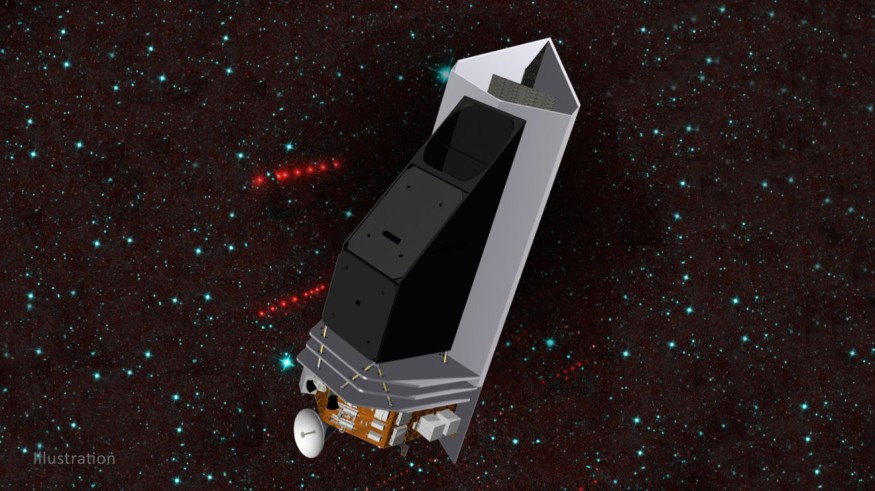Experts claim that the emergency preparedness efforts currently underway to tackle the coronavirus epidemic provide insight into our capacity to deal with a dangerous impending asteroid.
According to asteroid scientists and an expert on disaster preparedness, the things that went right and wrong in the coronavirus war can teach humanity significant lessons about planetary defense.
Mistakes to Avoid
Thomas Jones, a scientist, author, and retired NASA astronaut, said the new coronavirus is a good case study of faults to avoid while averting an asteroid impact.
Jones said the global reaction to the virus had shown some coordination through the World Health Organization. Still, that organization's response has been hindered and delayed because some of the data sent to it are spurious, fraudulent, or erroneous.
Most countries have taken their course in reacting to their interests, aided by international experience and consultations. According to Jones, separate nation-to-nation allocations of resources and manufacturing priority resulted in delays.
"This is understandable, but it's not a good model for dealing with an asteroid impact threat. A fragmented, staggered and uneven response to an impact threat is a recipe for delay and inaction, foreclosing options to deflect the asteroid," Jones told Space.com.
"We'll need transparent sharing of all observations of the object, and international vetting of all the impact predictions," he added. "Any required deflection campaign will only succeed if an internationally supported consortium develops and carries out the effort, with ongoing, shared insight into every step of development," Jones added.
Without such shared confidence, Jones claims, states will defend themselves unilaterally, wasting time, resources and increasing the danger of failure.
What to Avoid
Lindley Johnson, NASA's Planetary Defense Officer and Program Executive of the space agency's Planetary Defense Coordination Office, parallels the global pandemic and the asteroid threat.
"The first is, of course, the importance of early detection," Johnson told Space.com. "The earlier you detect the threat, the more chance you have to take actions to prevent it before it can have a significant impact."

Then there's the matter of being appropriately prepared for an occurrence that will undoubtedly occur at some point in the future. According to Johnson, a deadly asteroid impact might happen, just as another dangerous sickness will develop.
Johnson remarked, probably substantially less than what could be prudent for preparing against a pandemic, referring to the funds needed for planetary defense, which could be around $200 million per year.
Early Detection
Linda Billings, a NASA Astrobiology Program and PDCO consultant, emphasizes the importance of technological readiness, particularly the requirement for a space-based near-Earth object survey telescope. She said that all the small-bodies community has been saying this for years.
Better ground-based surveillance systems, as well as further missions to test deflection strategies, are also required, according to Billings. "Be prepared and don't wait until a crisis comes," she told Space.com, referring to the pandemic's teachings.
There must be clear, succinct, consistent messaging, which we do not have in the pandemic crisis, Billings said of communications.
When to Know and Care
David Ropeik, a retired Harvard professor and the book's author, "How Risky Is It, Really? Why Our Fears Don't Always Match the Facts," sees parallels between the COVID-19 outbreak and a collision Earth and a space object.
Rare incidents are scarce by definition. As time passes since the last one, the threat loses its emotional heft, Ropeik told Space.com. "Without it, it becomes an abstraction, just a notion that doesn't seem viscerally real and dangerous, and that's what it takes to generate the big investments needed to prepare for something big. Unfortunately, and to demonstrate the point, this has been said many times before, concerning various risks, virtually always in retrospect, "he stated
Ropeik emphasized that preparation begins to meet the hazard only when the threat maintains its emotional valence.
Because of how hard severe acute respiratory syndrome (SARS) hit Hong Kong over 20 years ago, Ropeik believes the city-state is more prepared for the COVID-19 epidemic. Because of the 2013 Chelyabinsk asteroid incident in Russia and the surge of disaster movies, including some near-miss controversies before that, he added, people are more prepared for an asteroid impact.
RELATED ARTICLE : China Eyes Launching Rockets to Prevent Asteroid-Earth Collision
Check out more news and information on Space in Science Times.
© 2026 ScienceTimes.com All rights reserved. Do not reproduce without permission. The window to the world of Science Times.











